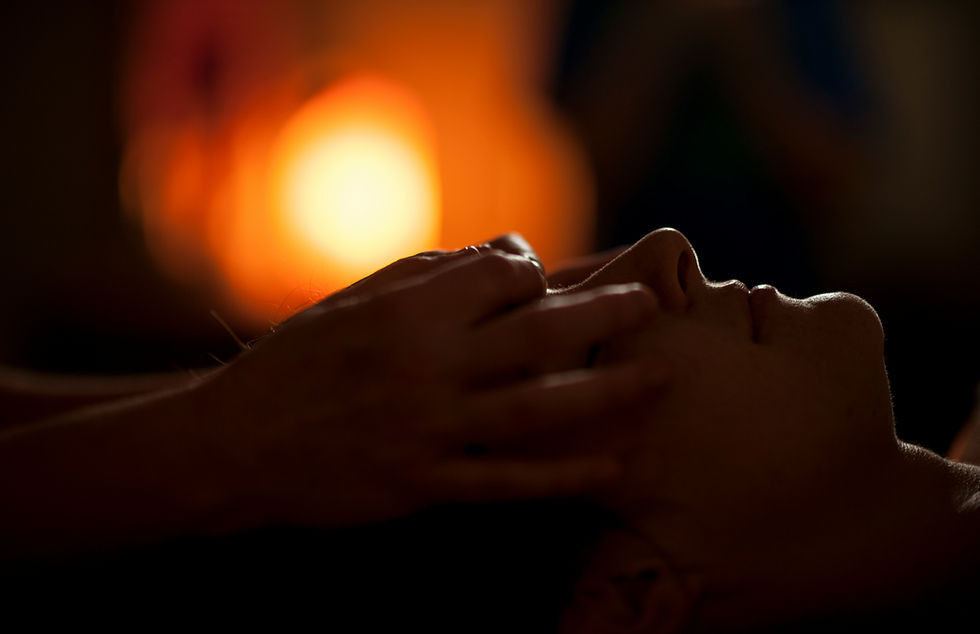EXERCISE FOR MENTAL HEALTH
- Claire Harrison

- Sep 27, 2020
- 3 min read
Updated: Sep 28, 2020

Everyone understands that exercise is good for maintaining good physical and mental health, but it has probably never been quite so important as during the current time of pandemic. The daily routine of commuting to work, walking around offices, walking to buy a sandwich at lunchtime has diminished and instead we’re staying indoors more than we’d like. The benefits of the passive exercise we used to do daily is not being realised and has had a massive impact upon our overall health.
At the height of lockdown our average step count was down by 50%. Gyms and sports centres are either closed or enforce strict social distancing measures which makes any form of concentrated exercise more of a chore. The fact that we have to actively think about booking ahead rather than popping into the gym on the spur of the moment, after work, or first thing in the morning has it’s disadvantages.
However, you don’t have to run a marathon or take part in high impact, sweat classes to make a difference. Even simple stretching can be beneficial in maintaining physical resilience to help fight the virus through our immune system. Stretching helps to:
Create better circulation: to ensure blood and immune cells move around the body to where needed most for regeneration and repair. Better circulation also flushes cell waste products away from cells and eliminates them from the body
Create stronger bones and joints: improving posture resulting in fewer aches and pains and maintain better balance.
Maintain a healthy weight reducing the work for lungs and heart when undertaking daily activities.
Sleep better: important for restoration of the body – for cell repair to help maintain the integrity of our immune system and general health.
Mental health benefits
Research from previous epidemics has shown that quarantine can result in high levels of psychological distress. Exercise releases endorphins, a natural chemical that makes us feel good. Other mental health benefits includes lower mental fatigue and better sleep which reduces poor mental health. Indeed, exercise is an evidenced based treatment for anxiety and depression. Over a third of us believe their mental health has deteriorated since the start of the lockdown. This is most apparent within the 18 to 24 year age group, with over half feeling their mental health has worsened. Interestingly, half of this age group are failing to get more than 2 hours of exercise a week, missing the NHS guidelines of 150 minutes of exercise a week for adults aged 19-64.
Any type of exercise is good for you, even ten minutes a day gives some benefits, but of course, the more you can do the better. Ideally you should try to undertake 150 minutes a week of moderate exercise or 75 minutes of vigorous exercise, or a mix of both.
Strength and flexibility exercises such as Yoga and Pilates are easier to fit into your routine if you are short of space because of social distancing or in quarantine. These exercises can be adapted from normal home activities such as carrying heavy shopping bags or gardening. Try adapting to your situation, for example if you are confined to a desk concentrate on neck/back and shoulder exercises.

Walking, specifically for exercise, has been the most popular new activity with three in ten introducing this into their lockdown regimes. and cycling outdoors. Encouragingly, of those who have become more active over the past few weeks, either increasing exercise levels or taking up a new form of exercise, 8 out of 10 say they will try to continue with their new exercise regime once life returns to a ‘new normal’.
We’ve become quite creative with exercise at home, with almost a third of us substituting household objects such as chairs, stairs, tins of food and even bottles of wine for gym equipment to support our workouts.
The majority of those exercising during lockdown say that exercise has helped them better cope mentally with the disruptive impact that the pandemic has had on their day-to-day lives.
If you’re looking to incorporate Pilates into your daily exercise routine, either by working out using a personalised plan at home or on a one to one basis in a safe environment, Hayley Oxley can help. A fully comprehensive Pilates instructor, having trained with Alan Herdman, Hayley has completed the Polestar Comprehensive Pilates studio course as well as several training courses with the Basi foundation in California and is pre and postnatal Pilates certified. Her teaching is complemented by her training as a trained clinical massage therapist with JING school of massage in Brighton. Hayley is also a fully trained Gyrotonic trainer and offers personalised sessions that are adapted to fit the needs of all ages, and abilities, from elderly patients recovering from injury, to highly skilled professional athletes.






Comments